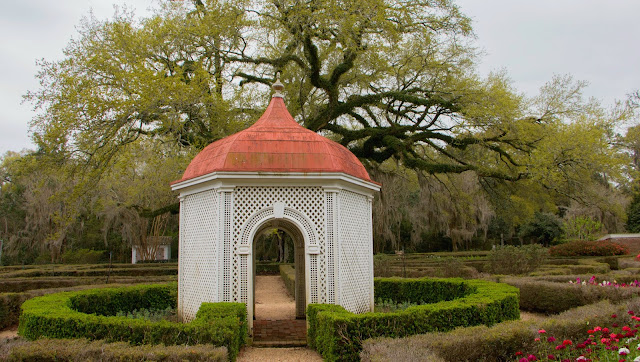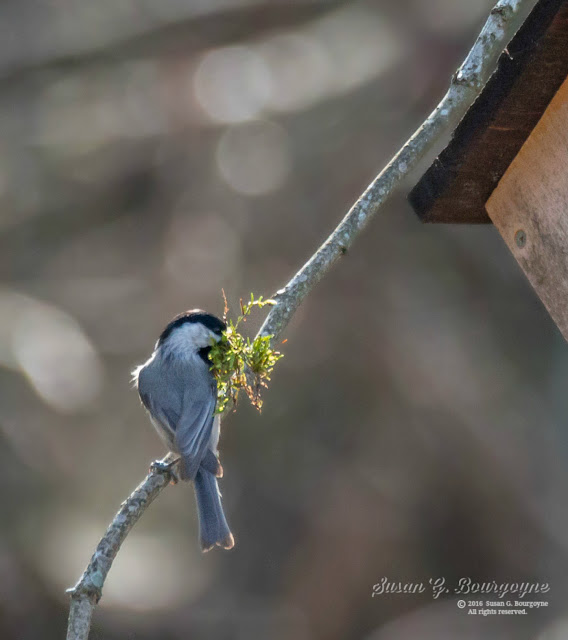After a walking tour through Rip Van Winkle Gardens in Jefferson Island, Louisiana, I was sure to visit Rip's Rookery. The five man-made islands and four ponds that comprise the rookery is a magnet for breeding Roseate Spoonbills, Egrets, White Ibises and Herons. Thousands of these birds make the rookery their home from spring into fall.
During the time of my visit, the Roseate Spoonbills were the most plentiful birds seen. Scores of them were either roosting in treetops, preening or wading in shallow areas of the pond. A narrow path runs alongside the water's edge, but since the rookery is surrounded by water, distance was a factor in getting close-up images of the birds.
Roseate Spoonbills feed in shallow waters, walking forward slowly while they swing their heads from side to side, sifting the muck with their wide flat bills. Diet is mostly small fish such as minnows; also shrimp, crayfish, crabs, aquatic insects (especially beetles), mollusks and slugs. They also consume some plant material, including roots and stems of sedges.
These birds nest in colonies. At the beginning of breeding season, the entire flock may suddenly fly up, for no apparent reason, and circle the area. In courtship, male and female first interact aggressively and later perch close together, present sticks to each other and cross and clasp bills. In the U.S., they are most often seen in coastal Florida, Texas, and southwest Louisiana.
I hope you enjoyed the photos and information on the Roseate Spoonbills. Hopefully, I'll have the opportunity to return to the area in a few weeks and capture some photos of their nestlings. Have a wonderful Wednesday!
Linked with Stewart at Paying Ready Attention for Wild Bird Wednesday




















































